Gaining from space
Though India’s approach to space has been pragmatic, it is hindered by a lackadaisical approach by policymakers. India must recognize the stagnancy and myopia of its space program and come up with a long-term vision.
 Courtesy: ridingwithrobots/Flickr
Courtesy: ridingwithrobots/Flickr
Though India’s approach to space has been pragmatic, it is hindered by a lackadaisical approach by policymakers. India must recognize the stagnancy and myopia of its space program and come up with a long-term vision.
 Courtesy: mpeacey/Flickr
Courtesy: mpeacey/Flickr
Traditionally, the South Pacific islands have been considered strategically insignificant. However, the need for resources, and the geopolitical shift towards Asia-Pacific have prompted nations to realize that these small island states control large resource-rich ocean areas and are increasingly geostrategic.
 Courtesy: PMO
Courtesy: PMO
It is evident that Tamil Nadu plays a large role in shaping India’s policy towards Sri Lanka. The recent visit to India by Sri Lanka’s President, coming promptly after aggressive rhetoric from Tamil Nadu, is yet another sign that foreign affairs cannot be outsourced to regional or state governments.
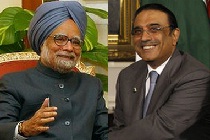 Courtesy: Cropbot, Russavia/WikimediaCommons
Courtesy: Cropbot, Russavia/WikimediaCommons
Manmohan Singh is likely to visit Pakistan later this year. As the first visit of an Indian Prime Minister to the country in 8 years, it will be a significant event. The timing and the agenda of the PM’s visit, however, raise a few questions.
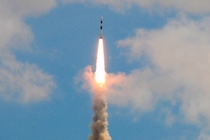 Courtesy: PIB
Courtesy: PIB
If its space assets are used effectively, India could have a formidable fleet of five to 10 satellites dedicated for military use and dozens more for the advancement of its economy.
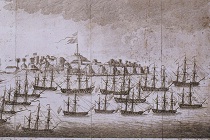 Courtesy: Columbia/WikimediaCommons
Courtesy: Columbia/WikimediaCommons
In the 1700s, one man antagonized the European powers, and insisted on the Maratha Empire’s rights to taxation and sovereignty over Maharashtra’s coast. He was Kanhoji Angre, the head of the Maratha navy. How did he, 283 years ago, set an important precedent for the Subcontinent’s local powers?
It is estimated that up to 20% of India’s power capacity lies idle due to the lack of coal available in the country. The recent $33 billion scam on the allocation of coal blocks reflects the apathy among the Indian leadership towards effective policy-making.
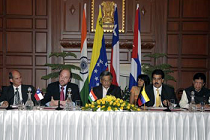 Courtesy: Embassy of India, Venezuela
Courtesy: Embassy of India, Venezuela
CELAC (Community of Latin American and Caribbean States) chose India as its first dialogue partner, expressing its intent to expand trade and diversify. Given the increased political will from both sides, can CELAC be the driver for India-Latin America relations or will bilateral ties maintain the status quo?
 Courtesy: Foreign Affairs
Courtesy: Foreign Affairs
Since weak demand is at the heart of the recession, governments need to enact stimulus programs along with structural reforms, argues Menzie Chinn. Structural reforms don’t always work out, writes Karl Smith. Raghuram Rajan demurs.
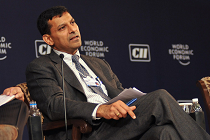 Courtesy: World Economic Forum/Flickr
Courtesy: World Economic Forum/Flickr
A short analysis by Gateway House on what you can expect from Raghuram Rajan, the new Chief Economic Advisor to the Government of India.